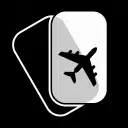Sluggish US Economy’s impact on Air Charter Industry
It is no secret that Americans are facing tough times in today’s economy. Major sectors of our economy are struggling, wholesale inflation is on the rise across the board and the cost per barrel of oil seems to have no ceiling. The housing and construction industry, along with leading financial institutions are among the hardest hit. Multinational organizations and Fortune 500 companies are downsizing, trimming the budget and eliminating unnecessary expenses. For many companies, eliminating travel is not an option. But with the high cost of charter flight service, what kind of impact has been seen within the corporate charter flight industry from the poor economic news?
It seems logical that companies would be cutting back on travel expenses these days. One could naturally assume that the corporate cost cutting trend has hurt demand for jet charter flights. While it is true that many would be private jet charter flight customers are seeking other means of travel, it is not clear whether or not the pool of private jet charter flight customers is actually shrinking or if revenues are decreasing. The reason for this could be that some of the large US companies who have dedicated flight departments are selling off their fleet and opting for the comparatively inexpensive on-demand charter flight option. Private jet charter flights allow company executives the opportunity to have access to a well maintained aircraft with highly experienced pilots. Often times the private charter flight aircrafts are as luxurious if not more so than their corporately owned counterparts.
While the US economy may be struggling and domestic demand for private jet acquisition and charter flights is burdened by economic woes, production of business jets hasn’t stopped. Gulfstream a leading manufacturer of luxury private jets has just introduced their newest plane to the market, the Gulfstream G650. The G650 is largest, fastest and most expensive Gulfstream ever. Signing a $1.9 billion deal with Warren Buffets international fractional jet ownership company, Net Jets. Continued growth in the private aviation sales and charter markets is likely attributed to a strong global economy. According to Forbes, the explosion of oil wealth in Russia combined with their lack of good airlines, has fueled demand for private jets and has become a relatively strong market for charter flights. Joel A. Thomas, President of Stratos Jet Charters Inc., a leading international charter jet and jet sales agency, has said “despite the tough economic times domestically, Stratos Jets has found success by tapping into a network of air charter consumers in Europe and the Middle East.” He went on to say, “international demand for our service now represents close to 30% of our business.” According to an Aviation International News forecast, this trend is expected to continue at the rate of 9.4% for the next 14 years.
Domestic demand for private aviation and charter flight jet service remains strong despite the cutbacks in corporate spending. Stratos Jet Charters, Inc. has not seen a decrease in overall demand, but reports that they have seen a shift toward more economical aircrafts. Explaining this shift, Joel Thomas commented “We have seen demand remain strong for our service, but have seen a shift toward more budget conscious flights. Air charter clients are spending more of their time researching charter jet costs and looking for the best deal.” Air charter agencies, like Stratos Jet Charters, place an emphasis on client education. By educating the client, you help them ensure that they are able to make an informed buying decision. “Client education has been the cornerstone to our success. In this way, we become their resource for private aviation.”
Are you ready to book your Ankara and Istanbul charter flight yet?
Our friendly, expert air charter agents are here to answer questions or start your quote today. Don`t wait, call now and we'll get you on your way to your destination!
Call 888-593-9066










